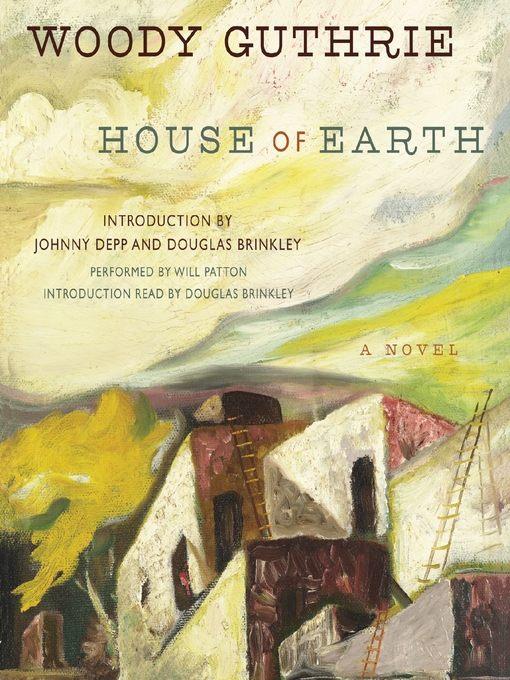
House of Earth
A Novel
کتاب های مرتبط
- اطلاعات
- نقد و بررسی
- دیدگاه کاربران
نقد و بررسی

December 10, 2012
Guthrie’s multifaceted legacy lives on (and combines beautifully with his affecting 1930 autobiography Bound for Glory) with this posthumous Texas plains novel set during the Dust Bowl era. The story is prefaced in a long-winded introduction by Brinkley, a media historian, and Depp, who polished the rough manuscript. Spearheading this tale of woe is Tike and Ella May Hamlin, a hardworking farmer and his pregnant wife, both subsisting in a rickety shack on land prized by a sharecropper. Tike dreams of building an adobe home to circumvent the use of pricey lumber and avoid the bank. The couple’s interactions, including graphic, extended erotic scenes, form the crux of a highly resonant, symbolic novel rife with themes of nature’s wrath, the misery of poverty, and the proletarian’s struggle against the churning machines of commerce. With dialogue rich in “hillbilly” vernacular and a story steeped in folk traditions, Guthrie’s drought-burdened, dust-blown landscape swirls with life. The book is finely supplemented with a biographical time line, companion discography, and artwork licensed by the Woody Guthrie Archives. His heritage as folksinger, artist, and observer of West Texas strife lives on through these distinct pages infused with the author’s wit, personality, and dedication to Americana.

December 1, 2012
Radical American folk singer Guthrie, gone 45 years now, turns in an accomplished if somewhat symbol-dense piece of fiction. Edited, at least to an extent, by prolific historian Douglas Brinkley and movie star and boho-lit fixture Johnny Depp, Guthrie's foray into prose (not his first: his 1943 Bound for Glory remains an iconic autobiography) is set on the Texas plains in the howling, unsettled Dust Bowl era. The new civilization of banks, deeds and lawyers is represented by wood, which is scarce out in that wind-blasted, dry country; adobe, sun-dried mud brick is the virtuous stuff of the people, themselves wind-blasted and creaky with aridity but stiff-necked and disinclined to bow down. The metaphor figures, in countless permutations, throughout Guthrie's novel, as it evidently did in letters of various confidants, including one from Woody to actor Eddie Albert (yes, of Green Acres fame) in which he writes excitedly, "Local lumber yards dont advertize mud and straw because you cant find a spot on earth without it, but you see old adobe brick houses almost everywhere that are as old as Hitlers tricks, and still standing, like the Jews." That nicely enigmatic statement stands up alongside other motifs, including Guthrie's apparent approval of large women who could give birth to a whole new human race. Written in the shadow of Steinbeck, Guthrie's novel layers on social realism without propagandizing overmuch; his straightforward depiction of his raw rural characters are reminiscent not of any of his fellow Americans so much as they are of Mikhail Sholokhov. The folksy, incantatory exuberance is all Guthrie, however: "I'm glad to see you! I'm just about th' gladdest that any man ever was to ever see any womern! Whew! Come in! Blow in! Watch out there! Your clothes are blowin' plumb off!" An entertainment--and an achievement even more than a curiosity, yet another facet of Guthrie's multiplex talents.
COPYRIGHT(2012) Kirkus Reviews, ALL RIGHTS RESERVED.

























دیدگاه کاربران